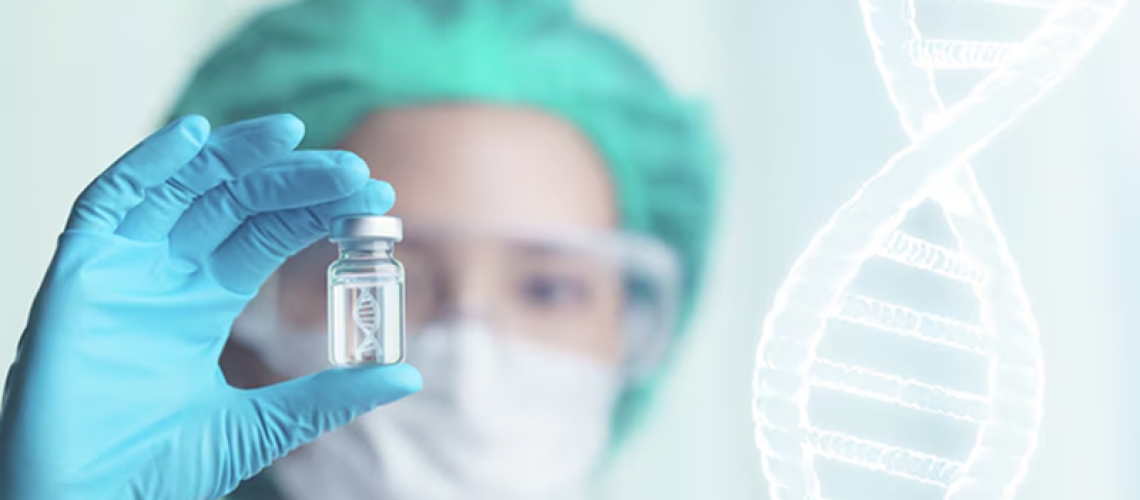Each year on April 25, DNA Day commemorates the discovery of the DNA double helix and the completion of the Human Genome Project. While this observance celebrates milestones in science, it also presents an opportunity to spotlight the practical benefits of genetic testing in everyday healthcare—especially preventive care.
At WebDoctors, we believe in empowering patients with knowledge and technology that help detect risks early and prevent future illnesses. Genetic testing is a game-changer in this mission.
What is Genetic Testing?
Genetic testing involves analyzing a person’s DNA—the blueprint of life—to detect changes or mutations that could lead to specific diseases or conditions. These tests can identify your risk for inherited conditions, guide personalized treatment plans, and inform lifestyle changes that support long-term health.
Why Genetic Testing Matters in Preventive Healthcare
Preventive healthcare focuses on identifying risks before they develop into serious illnesses. Genetic testing enhances this approach in the following ways:
- Early Detection of Hereditary Diseases
Genetic testing can reveal your predisposition to certain cancers (like breast, ovarian, or colon), cardiovascular diseases, and other chronic illnesses. Knowing your risk allows your healthcare provider to schedule earlier and more frequent screenings or suggest preventive medications or procedures.
- Personalized Preventive Plans
Everyone’s body is different. With genetic insights, your care plan can be tailored to your unique biology. For example, a person with a high risk of type 2 diabetes based on genetic markers may be advised to start lifestyle interventions earlier than others.
- Informed Family Planning
Genetic screening can help identify inherited conditions that may be passed to children. Carrier screening for conditions like cystic fibrosis or Tay-Sachs allows individuals or couples to make informed reproductive choices.
- Medication and Treatment Optimization
Pharmacogenomics—a branch of genetic testing—can determine how your body responds to medications. This can prevent adverse drug reactions and help your provider choose the most effective treatment with the right dosage.
- Mental Health Insights
Certain mental health disorders like depression, bipolar disorder, or schizophrenia may have genetic components. Early insight allows for closer monitoring, support, and targeted interventions if symptoms appear.
Health Conditions Detectable Through DNA Testing
Genetic testing plays a vital role in identifying predispositions to various health conditions before symptoms appear. By understanding your genetic makeup, you can work with your healthcare provider to implement early interventions or lifestyle changes. Common conditions that DNA testing can help detect or prevent include:
- Hereditary cancers (such as BRCA1/BRCA2 for breast and ovarian cancer)
- Cardiovascular diseases (including familial hypercholesterolemia)
- Type 2 diabetes
- Alzheimer’s disease
- Celiac disease
- Lactose intolerance
- Blood clotting disorders (like Factor V Leiden)
Early awareness allows for proactive screenings, preventive medications, or behavior adjustments to reduce the risk of developing serious illness.

How Genetic Insights Support a Healthier Lifestyle
Genetic insights don’t just help diagnose diseases—they empower you to build a lifestyle tailored to your biology. With DNA testing, you can:
- Optimize your diet: Learn how your body processes fats, carbs, and vitamins.
- Personalize your fitness: Understand your endurance capacity and muscle composition to choose workouts that work best for you.
- Improve sleep and mental health: Genetic markers can reveal predispositions to anxiety, depression, and sleep disorders, encouraging early interventions.
- Avoid adverse drug reactions: Pharmacogenomic testing can determine how you respond to certain medications, allowing safer prescriptions.
By tailoring your health decisions to your genetics, DNA testing fosters long-term wellness and prevention—rather than just reactive treatment.
Is Genetic Testing Right for Everyone?
Not everyone needs genetic testing. However, it is especially beneficial for individuals with:
- A family history of chronic or inherited conditions
- Unexplained symptoms or health complications
- A personal or family history of certain types of cancer
- Interest in personalized preventive care or reproductive planning
At WebDoctors, we encourage a consultation with a healthcare provider to assess whether genetic testing is right for your needs.
Addressing Common Concerns
A. Is Genetic Testing Safe?
Yes. Most tests require a saliva sample or a simple blood draw. There are no side effects or risks associated with the procedure itself.
B. Will Insurance Cover Genetic Testing?
Coverage depends on your plan and the reason for testing. Some insurance providers may cover tests ordered by a doctor for medical reasons, while others may not cover elective tests.
C. What About My Privacy?
Genetic information is protected under HIPAA (Health Insurance Portability and Accountability Act) in the U.S. Reputable testing companies and healthcare platforms like WebDoctors follow strict data privacy and security standards.
How to Get Started with Genetic Testing
- Consult with a Provider – Speak with a WebDoctors physician online to determine if testing is appropriate for you.
- Choose the Right Test – Your provider may recommend a specific panel based on your health history or goals.
- Send a Sample – Most tests are easy to use at home with a simple saliva kit.
- Review the Results – Your results will be discussed with a doctor who will help interpret the findings and plan next steps.
Final Thoughts
Genetic testing is no longer just for research labs. It’s a practical tool in preventive medicine—offering early warnings, tailored treatment, and personalized wellness strategies. On DNA Day, let’s celebrate not just how far science has come, but how we can use it to take better control of our health.
At WebDoctors, we’re committed to making modern, accessible healthcare a reality. If you’re considering genetic testing, book an online consultation today and discover how your DNA can help guide your path to a healthier future.




